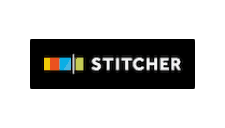Listen to Episode 41
Bonus: Watch the spotlight version of this episode on YouTube!
Full Show Notes
Our conversation today was inspired by questions from our #coachbetter facebook group. We’re planning to respond to those questions here on the channel regularly, so please join us or connect with us @edurolearning to ask your question!
Trends in instructional coaching in Asia – what does being a coach mean?
The best PD we can give teachers is instructional coaching, within the classroom. Schools are sending less teams to conferences, bringing consultants in less. They’re asking: How do we personalize the learning for teachers? And the answer is instructional coaching.
How do we, as coaches, document the work we’re doing with coaches? How, as teachers, are we expected to document the work we’re doing with coaches that impact practice?
Coaching is about slowing down the moment for a teacher. Helping a teacher recognize all the teaching strategies their using, and the effects that they’re having, so they can use beneficial strategies in the future and less of strategies that are not working. Coaching provides opportunities to make those experiences visible (reflect back on what’s actually happening).
Trend: less coaches, more general job title / description. May have happened because EdTech jumped on the “trend” of coaches, but only changed the title, not the job description.
Trend: focus on modern learning practice / modern learning environments. Can’t have those without an element of educational technology. Helping teachers (and parents) understand what this looks like in practice. What’s the role of the teacher? The role of the coach is to help teachers understand what their role looks like now.
Trend: understanding and applying critical literacy skills within content areas. As teachers, how do we help students filter through content, create knowledge and communicate that?
What does being a coach mean?
You know what modern learning looks like and you can personalize the professional growth for all teachers on your staff. Critical to have a definition of what good teaching and learning looks like as a whole school, so we all know what we’re working towards. Having rubrics and standards for these expectations will help teachers too. Coaching can be a very slow process. It’s slow, but exponential growth, building capacity over time. This means coaches may have to be strategic in ways that might not initially feel comfortable to teachers, and always have to be adaptable to the changing needs of all staff members. Need to be able to sustain the school’s vision, even with large scale turnover in staff.
What can I do to shift the view of my role as more of an instructional coach and less of an IT teacher?
Start with what is the expectation of your school in that job? Has the job description changed while you’ve been in the position? If that’s the case, you might need to articulate what coaching means (both with school leadership and with teachers). You might need to write your own job description, and it’s important to understand what is realistic given the limitations of the position (time and course-load in particular).
Once the role is articulated, prioritize tasks that are coaching and minimize those that are not. Following the approach of “you are what you do” – you build understanding of your role through your actions.
Put structures in place to ensure success. If you are working towards being part of teaching and learning, you need to be in those meetings, being part of curriculum and team meetings. What other structures need to be in place to make the role successful in your school?
With the changing roles of EdTechs, what are some strategies that schools utilize to continue to build capacity while convincing admin that our role should not be eradicated?
Tech skills are much more readily accessible for most teachers. The capacity needs to be built on the pedagogical side. How can we re-think assessment? How can we re-think acquisition of knowledge to have more of a constructivist learning experience?
Focus on the pedagogy, focus on the why, focus on student agency. Tech allows us to do all of this. What changes can teachers make in the delivery of content, the expectations of students to empower voice and choice and provide a modern learning experience.
When we move towards a pedagogical focus, we lose an “easy” tick box of achieving specific tool-based skill sets. This becomes much more challenging to articulate. And on top of that, what happens to the tech infrastructure that still may need to be completed because reality.
In an ideal world, the Curriculum Coordinator would document the impact of coaches to validate the position, but this may be much harder in reality, so as a team you might have to work together. Must articulate what the modern learning environment. Also critical to have defined the structure and format of coaching across all curricular areas.
In essence, we’re asking a tech coach to change their job title and description to something often undefined, in an institution where success is often undefined, and then support other teachers in their professional growth towards another expectation is undefined, without having any structure in place to track that growth because we’ve never done that before. And we’re deciding whether or not to keep that position based on this qualitative data that we have no structure or past experience collecting.
We love sharing great content!
Get authentic, relevant, practical content delivered right to your inbox!
Connect with Us






